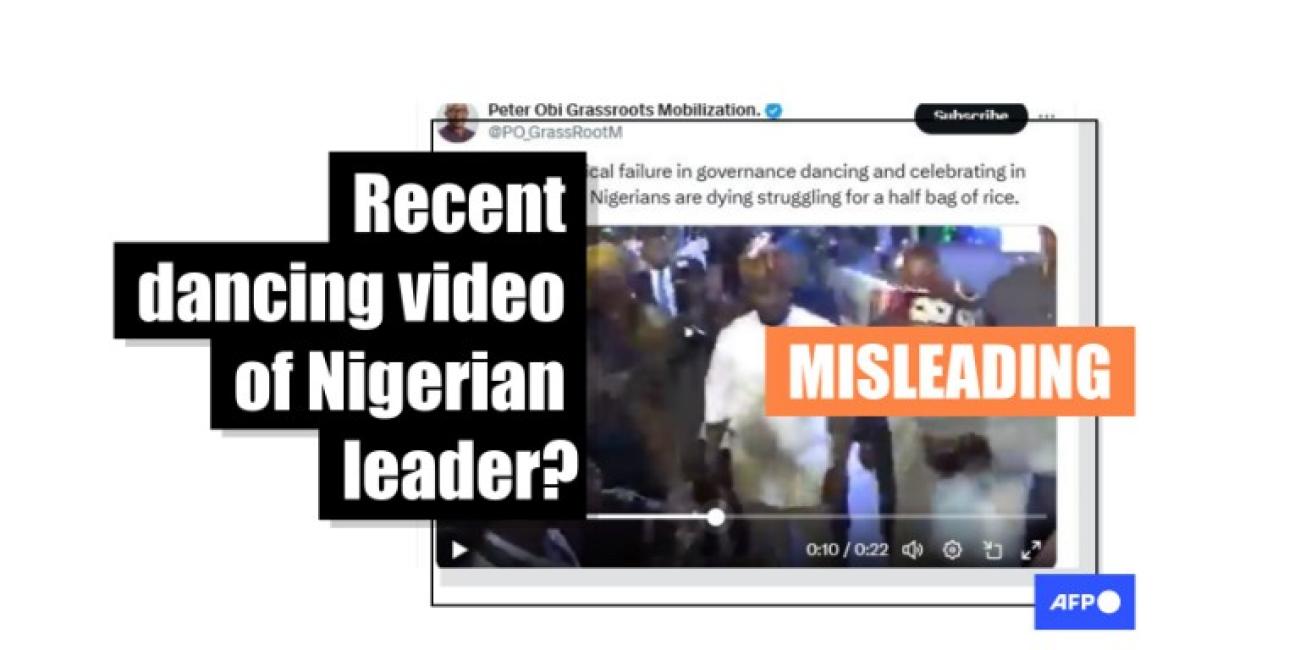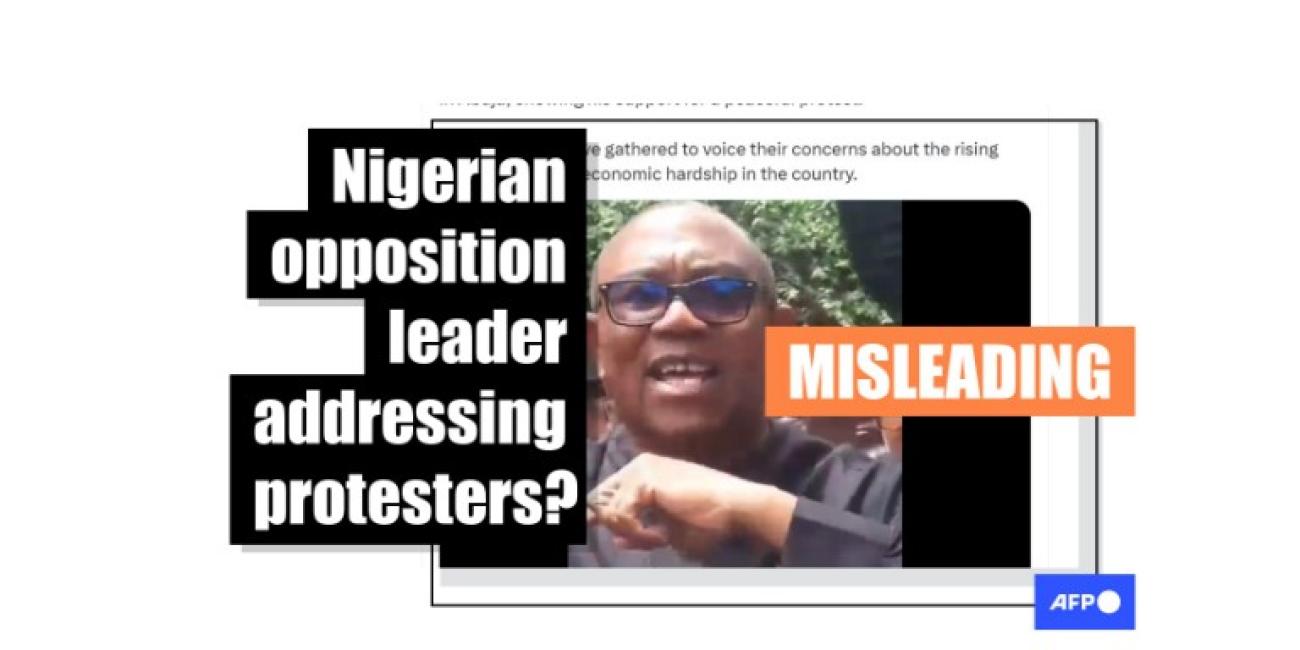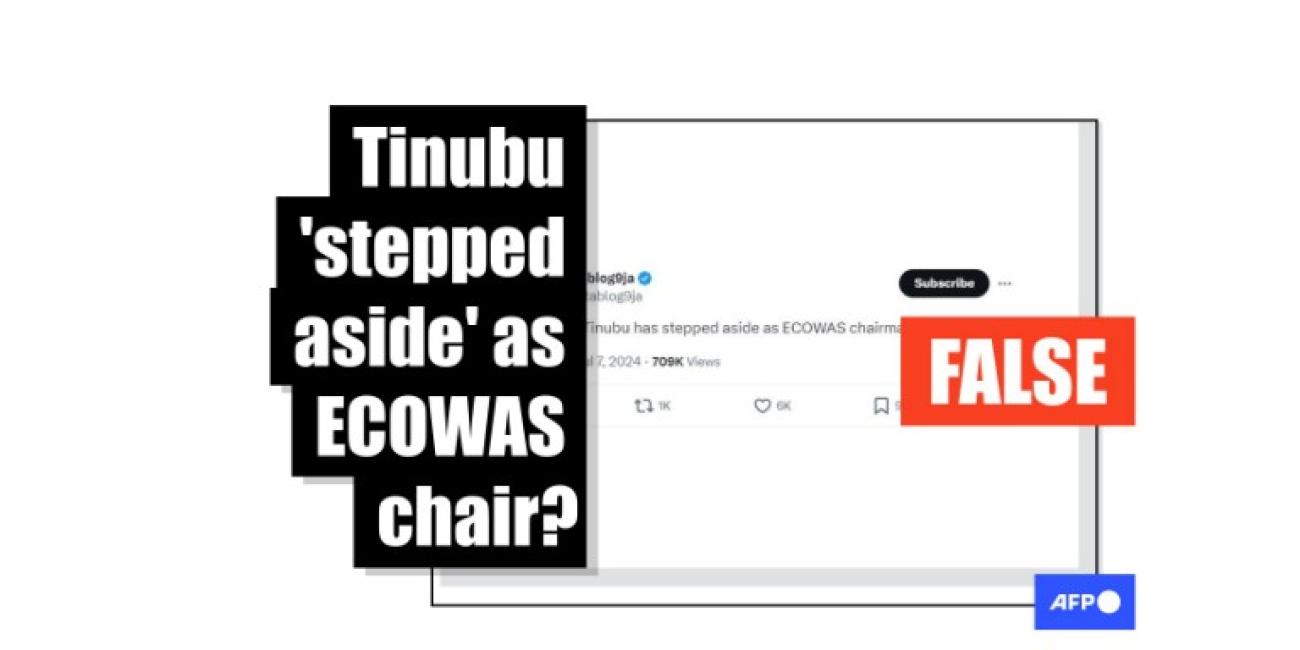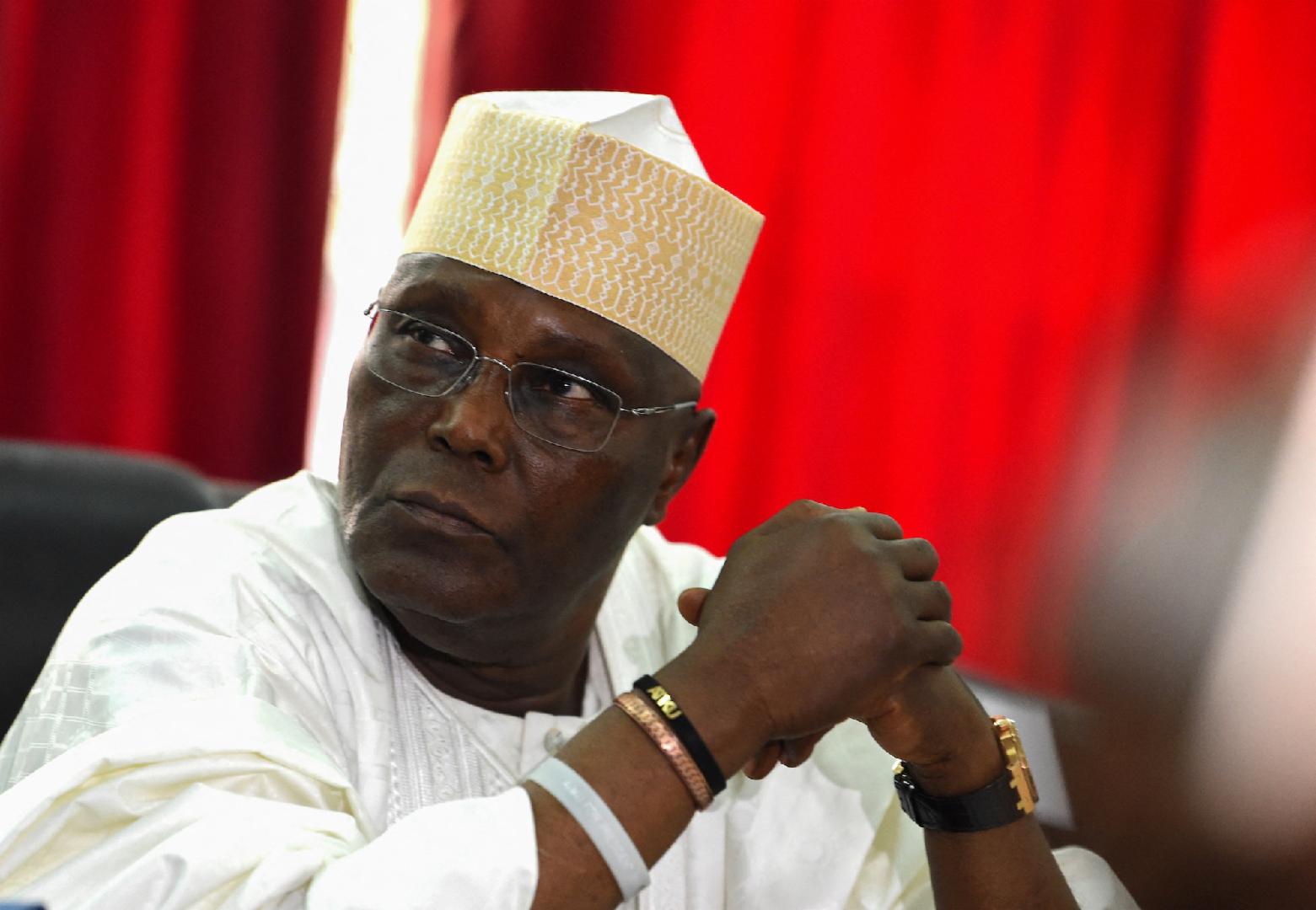
Nigerian presidential candidate said his wealth came from running taxi service, not 'selling cars'
- This article is more than three years old.
- Published on October 21, 2022 at 14:01
- 3 min read
- By Tonye BAKARE, AFP Nigeria
“Ask him to go and read his civil service regulations. They asked him question, ‘How did you make money?’ He said from selling cars (sic),” Tinubu said about Abubakar during a public meeting with the Arewa Joint Committee in Kaduna state, northwest Nigeria on October 17, 2022.
The event was broadcast by Channels TV and uploaded to YouTube.
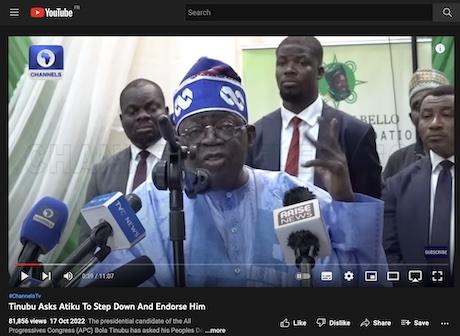
The Arewa Joint Committee (AJC) is a coalition of six forums and organisations from northern Nigeria. Members have held a series of meetings with candidates to determine their “commitments to matters that are central to the interests of the North”.
“Conflict of interest”
In an interview in May, Abubakar admitted making money privately while employed by the state. But he denied doing anything wrong.
Tinubu, however, told the AJC gathering that Nigerian civil service rules did not allow a public servant to be “involved in other trade and businesses” and called on Abubakar to withdraw from the presidential race.
Tinubu and Abubakar are among 18 candidates hoping to sway voters who go to the polls in February 2023.
The two men were once allies, being former members of the now-defunct Social Democratic Party and later the Action Congress. They also joined the All Progressives Congress when it formed in 2013, with Abubakar defecting to what is now the opposition Peoples Democratic Party.
Tinubu’s claim about exactly how Abubakar said he had earned money, though, is misleading.
Taxi boss
In an interview aired by Arise TV on July 22, 2022, Abubakar said he made his money about four decades ago operating a transportation business while working as a customs officer.
At no time during the interview of more than an hour did he say he sold cars, as Tinubu claimed.
“What I realised was that one of the most lucrative business ventures then was buying a Peugeot 404, putting a bench at the back and conveying passengers between Lagos and Cotonou or Port Novo,” Atiku told Arise TV.
“As a young officer, I walked into the UAC in Apapa, I signed a form for hire purchase and took about five of them. And I came back to Idiroko and distributed them to drivers. And they were ferrying passengers between Lagos and Port Novo and I was making my money.”
But was it in keeping with the country’s laws?
Abubakar, in his TV interview, claimed no Nigerian law “says you cannot engage in a legitimate business because you are a public officer. No law.”
However, Tinubu’s insistence that Abubakar was in breach of regulations is supported by the constitution.
Section 2 (b), Part 1 of the Fifth Schedule of the Nigerian Constitution says a “public officer” cannot “engage or participate in the management or running of any private business, profession or trade” except if “he is not employed on full-time basis”. Farming is an exception.
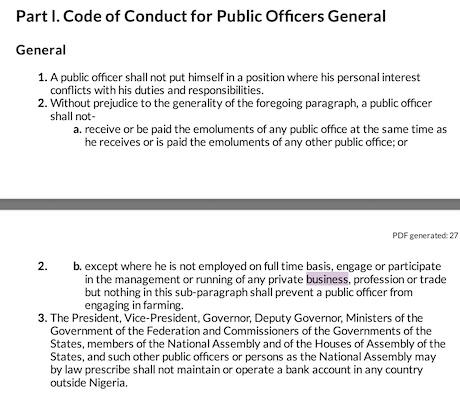
AFP Fact Check previously debunked Abubakar’s claims that there was no such law and other statements from his Arise TV interview here.
Copyright © AFP 2017-2026. Any commercial use of this content requires a subscription. Click here to find out more.
Is there content that you would like AFP to fact-check? Get in touch.
Contact us
